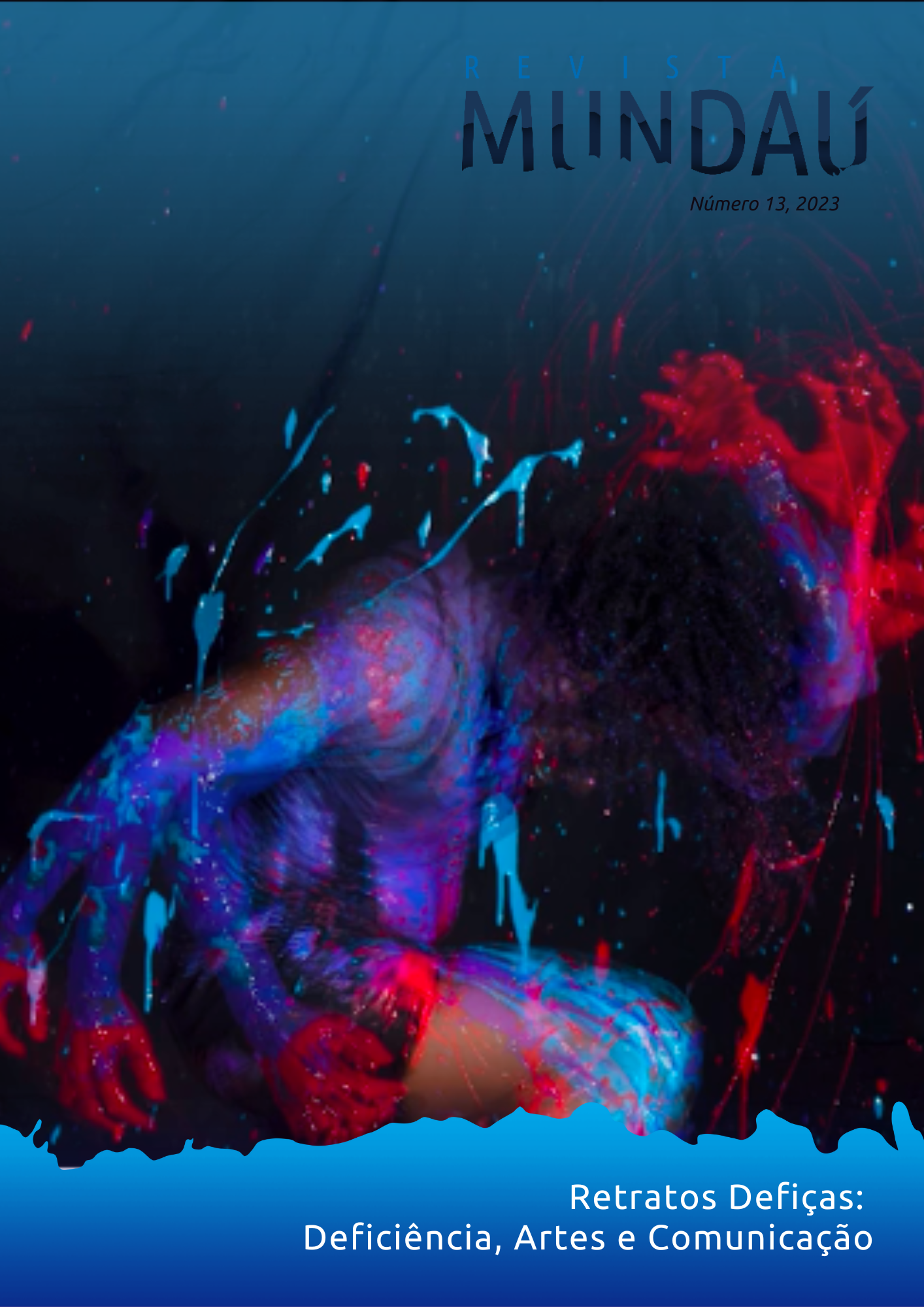From Identity Politics to Internalized Oppression: Navigating Positionality in Disability Research
DOI:
https://doi.org/10.28998/rm.2023.13.15312Palavras-chave:
Posicionalidade, Interseccionalidade, Estudos da Deficiência, Etnografia reflexiva, Conhecimento experencialResumo
The primacy of experiential knowledge is an undisputed foundation of disability activism and scholarship. Identity politics and intersectionality draw attention to the limited range of voices, interests and experiences represented in first wave disability organizing. Meanwhile, an emergent second wave urges a shift in focus from disabled identity to the interconnected systems of domination and exploitation that shape our embodied experience. Through critically reflexive interrogation of the author’s amorphous positionality, as a neurodivergent but otherwise non-disabled care worker turned health professional and disability scholar, this paper explores the relationship between disabled identity, membership in disability culture and experiential knowledge. A relational understanding of disability opens space to consider the legitimacy and value of disability-adjacent identities and perspectives. Limitations of participatory methodological approaches are considered and the emancipatory potential of reflexive ethnographic methodology is discussed.
Downloads
Referências
BARNES, Colin. An ethical agenda in disability research: Rhetoric or reality? In: MERTENS, Donna M.; GINSBERG, Pauline E. The handbook of social research ethics. Thousand Oaks: Sage, 2009. p. 458–473.
BRUEGGEMANN, Brenda. Think-between: a deaf studies commonplace book. In: BAUMAN, H-Dirksen L. Open your eyes: Deaf studies talking. Minneapolis: University of Minnesota Press, 2008. p. 35–41.
CHARLTON, James. Nothing about us without us: disability oppression and empowerment. Berkely: University of California Press, 2000.
COMBAHEE RIVER COLLECTIVE. The Combahee River Collective statement. In: TAYLOR, Keeanga-Yamahtta (Ed.). How we get free: Black feminism and the Combahee River Collective. Chicago: Haymarket Books, 2017. p. 15–27.
ELLIS, Carolyn; BOCHNER, Arthur P. Autoethnography, personal narrative, reflexivity: Researcher as subject. In: DENZIN, Norman K.; LINCOLN, Yvonna S. Collecting and interpreting qualitative materials. Thousand Oaks: Sage, 2003. p. 199–258.
GUILLEMIN, Marylis & GILLAM, Lynn. Ethics, reflexivity and ethically important moments in research. Qualitative Inquiry, v. 10, n. 2, p. 261–280, 2004. 10.1177/1077800403262360
HARDING, Sandra. Strong objectivity and socially situated knowledges. In: HARDING, Sandra. Whose science? Whose knowledge?: Thinking from women's lives. Ithaca: Cornell University Press, 1991. p. 138–163.
HUGHES, Bill; McKIE, Linda; HOPKINS, Debra; WATSON, Nick. Love’s labours lost? Feminism, the disabled people’s movement and an ethic of care. Sociology, v. 39, n. 2, p. 259–275, 2009. 10.1177/0038038505050538
KAFER, Alison. Feminist, queer, crip. Bloomington: Indiana University Press, 2013.
KATZMAN, Erika. Embodied reflexivity: Knowledge and the body in professional practice. In: GREEN, Bill; HOPWOOD, Nick. The body in professional practice, learning and education. Dordrecht: Springer, 2015. p. 157–172.
KATZMAN, Erika. The work of self-managing attendant services: a reflexive ethnographic study. [Unpublished doctoral dissertation] — London: The University of Western Ontario, 2018.
KATZMAN, Erika; KINSELLA, Elizabeth Anne. ‘It’s like having another job’: the invisible work of self-managing attendant services. Disability & Society, v. 33, n. 9, p. 1436–1459, 2018. 10.1080/09687599.2018.1497949
KATZMAN, Erika; KINSELLA, Elizabeth Anne; POLZER, Jessica. ‘Everything is down to the minute’: clock time, crip time and the relational work of self-managing attendant services. Disability & Society, v. 35, n. 4, p. 517–541, 2019. 10.1080/09687599.2019.1649126
KELLY, Christine. Building bridges with accessible care: disability studies, feminist care scholarship, and beyond. Hypatia, v. 28, n. 4, p. 784–800, 2013.
LATHER, Patti. Getting lost: feminist efforts toward a double(d) science. Albany: State University of New York Press, 2007.
LENNIE, June; HATCHER, Caroline; MORGAN, Wendy. Feminist discourses of (dis)empowerment in an action research project involving rural women and communication technologies. Action Research, v. 1, n. 1, p. 57–80, 2003. 10.1177/14767503030011005
LEWIS, Talila A. Working definition of ableism. January 2022 update. January 1, 2022. Available at: https://www.talilalewis.com/blog. Accessed on: April 13, 2023.
LEWIS, Talila A. Longmore lecture: context, clarity and grounding. March 5, 2019. Available at: https://www.talilalewis.com/blog/longmore-lecture-context-clarity-grounding. Accessed on: June 30, 2023.
LINTON, Simi. Claiming disability: knowledge and identity. New York: New York University Press, 1998.
LORDE, Audre. Sister outsider. Berkeley: Crossing Press, 2007 [1984].
McCABE, Janet L.; HOLMES, Dave. Reflexivity, critical qualitative research and emancipation: a Foucauldian perspective. Journal of Advanced Nursing, v. 65, n. 7, p. 1518–1526, 2009.
MILES, Angel L.; NISHIDA, Akemi; FORBER-PRATT, Anjali J. An open letter to White disability studies and ableist institutions of higher education. Disability Studies Quarterly, v. 37, n. 3, 2017.
NISHIDA, Akemi. Affecting neoliberal public health care: interdependent relationality between disabled care recipients and their care providers. [Unpublished doctoral dissertation] — New York: The City University of New York, 2016.
O’BYRNE, Patrick. The advantages and disadvantages of mixing methods: an analysis of combining traditional and autoethnographic approaches. Qualitative Health Research, v. 17, n. 10, p. 1381–1391, 2007.
PIEPZNA-SAMARASINHA, Leah Lakshmi. Care work: dreaming disability justice. Vancouver: Arsenal Pulp Press, 2018.
RICHARDSON, Laurel. Writing: a method of inquiry. In: DENZIN, Norman K.; LINCOLN, Yvonna S. Handbook of qualitative research. Thousand Oaks: Sage, 1994. p. 516–529.
SHAKESPEARE, Tom. Disability rights and wrongs. New York: Routledge, 2006.
SINS INVALID. Skin, tooth and bone: the basis of movement is our people. 2 ed. Berkeley: Sins Invalid, 2019.
STONE, Emma; PRIESTLEY, Mark. Parasites, pawns and partners: disability research and the role of nondisabled researchers. British Journal of Sociology, v. 47, n. 4, p. 699–716, 1996. 10.2307/591081
VORONKA, Jijian. The politics of ‘people with lived experience’: experiential authority and the risks of strategic essentialism. Philosophy, Psychiatry, & Psychology, v. 23, n. 3–4, p. 189–201, 2016. 10.1353/ppp.2016.0017
WEDGEWOOD, Nikki; SMITH, Louisa; SHUTTLEWORTH, Russel. ‘I employ a crew that can do life with me’: a young woman’s creative self- management of support workers. In: THOMAS, Gareth M.; SAKELLARIOU, Dikaios. Disability, Normalcy and the Everyday. London: Routledge, 2018. p. 123–141.
YOSHIDA, Karen; WILLI, Vic; PARKER, Ian; LOCKER, David. The emergence of self-managed attendant services in Ontario: direct funding pilot project – an independent living model for Canadians requiring attendant services. In: KRONENFELD, Jennie Jacobs (Ed.). Chronic Care, Health Care Systems and Services Integration. Research in the Sociology of Health Care, Volume 22. Bingley: Emerald Group Publishing Limited, 2004. p. 177–204. 10.1016/S0275-4959(04)22010-52004








